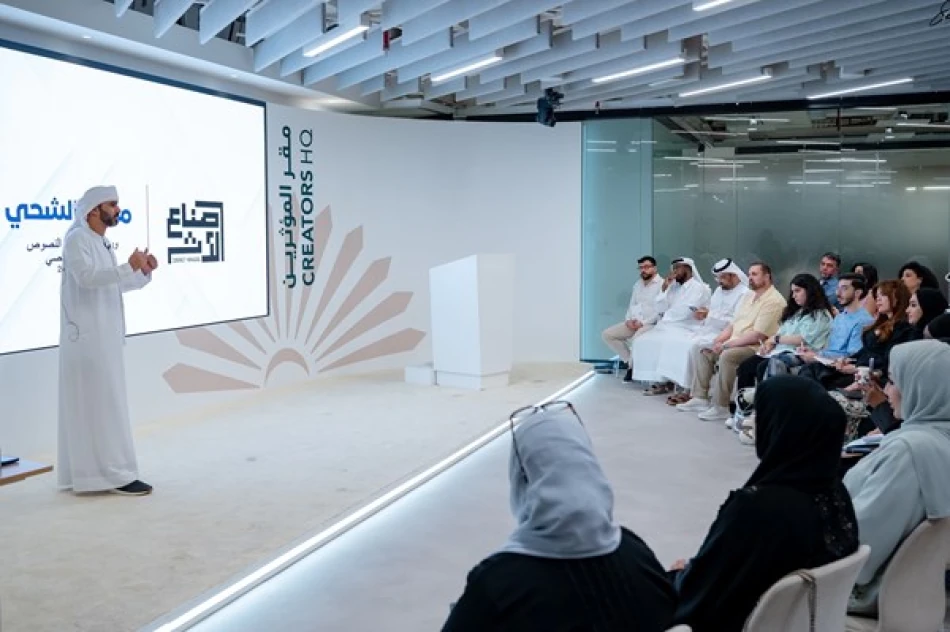
Empowering Arab Influencers: International Humanitarian Council Launches 'Creators of Impactful Content' Program
Dubai Emerges as Hub for Arabic Digital Humanitarian Content Creation
The International Council for Humanitarian Affairs has launched an ambitious Arabic-language program aimed at transforming how humanitarian stories are told across the Arab world. The "Humanitarian Impact Content Creators" initiative, running throughout August in Dubai, represents a strategic shift toward leveraging digital platforms and AI tools to amplify charitable and developmental work across the region.
Bridging the Content Gap in Arabic Humanitarian Media
The program addresses a critical shortage of impactful Arabic humanitarian content in an increasingly digital world. With 67 selected participants from across the Arab world—including healthcare workers, podcast hosts, journalists, and social media creators—the initiative seeks to professionalize content creation in the humanitarian sector.
The selection process proved highly competitive, with 637 applications from over 36 countries, demonstrating significant demand for such training. Only those with prior experience in humanitarian organizations or content creation made it through the screening process, ensuring participants bring both passion and practical knowledge to the program.
Comprehensive Skills Development
The curriculum covers essential modern content creation skills: storytelling techniques, video production and editing, photography, and crucially, artificial intelligence tools for content development. This technical focus reflects the growing importance of AI in content creation, particularly for organizations with limited resources.
Strategic Positioning in the Gulf's Media Landscape
Dubai's selection as the program venue aligns with the UAE's broader strategy to become a regional media and technology hub. The emirate has consistently positioned itself as a bridge between East and West, making it an ideal location for training content creators who will work across diverse Arab markets.
This initiative mirrors similar programs in Singapore and other regional hubs, where governments support media training to enhance their countries' soft power and cultural influence. The UAE's investment in humanitarian content creation could strengthen its position as a leader in regional development initiatives.
Market Implications for Digital Platforms
The program's emphasis on digital marketing strategies and AI tools suggests recognition that humanitarian organizations must compete for attention in crowded social media environments. Traditional charity appeals are increasingly ineffective compared to professionally produced, emotionally engaging content that tells compelling human stories.
Hussein Al-Atouli, director of the New Media Academy, emphasized the program's goal of creating content that "inspires generations and creates positive impact in communities." This language reflects understanding that modern humanitarian fundraising requires sophisticated narrative techniques previously associated with commercial marketing.
Long-term Impact on Fundraising
The focus on Arabic content creation addresses a significant market opportunity. Arabic-speaking populations across the Middle East and North Africa represent substantial potential donors, but much humanitarian content remains produced primarily in English or other languages, limiting its emotional resonance and effectiveness.
Technology Integration and Future Trends
The program's integration of AI tools represents forward-thinking approach to content creation. As artificial intelligence becomes increasingly sophisticated, humanitarian organizations that master these technologies early will gain competitive advantages in reaching and engaging audiences.
The three-week intensive format suggests participants will receive practical, hands-on training rather than theoretical instruction. This approach reflects industry recognition that content creation skills require practice and iteration rather than passive learning.
The initiative's success could establish a model for similar programs across the developing world, where humanitarian needs are greatest but professional content creation resources remain limited. Dubai's position as a testing ground for such innovations reinforces its growing importance in the global media landscape.
Most Viewed News

 Layla Al Mansoori
Layla Al Mansoori






